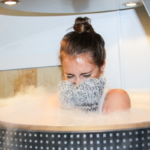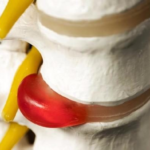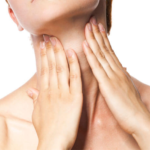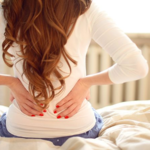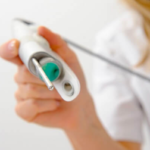Therapeutic effects of hirudotherapy for hernia of the lumbar spine
With a hernia of the spine, not only the affected part of the back suffers, but also many internal organs and the entire body. Stagnant processes, inflammation, tissue compression - all this affects the well-being and the ability to perform daily activities without pain and discomfort. In addition to standard therapy for disc herniation, a procedure such as hirudotherapy may be prescribed.
Hirudotherapy for a hernia of the lumbar spine is a healing technique using the beneficial properties of leeches saliva. The procedure is prescribed for patients with pathology of the spinal column as a way to combat stagnant processes and inflammation.
This term refers to treatment with medical leeches grown in the laboratory. They are useful in hernia with the properties of their saliva, which contains many biologically active substances, enzymes that improve blood circulation, lymph outflow and oxygen saturation of tissues.
In addition to the fact that leeches secrete many substances necessary for the body, in the process of feeding them with blood, defense mechanisms are activated in the body.
The benefits of hirudotherapy for a herniated disc
The main principle of treatment with leeches is the effect of their saliva on various processes in the body. It contains biologically active components that have a beneficial effect on blood circulation, the functioning of the nervous and cardiovascular systems.
Insignificant bloodletting in the process of sucking a leech has long been considered healing, because recovery processes are activated. This action is used in many branches of medicine, especially hirudotherapy is indicated for the pathology of the cervical spine, because it is this localization of the hernia that affects the blood circulation in the brain.
No less effective will be treatment with leeches for pathology of the disc in the lumbar region, given that the hernia of L4-L5 leads to congestive processes in the pelvic organs.
What is useful treatment with leeches of intervertebral hernia:
- relaxation of muscles and reduction of pain syndrome;
- acceleration and normalization of blood circulation in the diseased spine;
- stimulation of the restoration of cartilage tissue;
- elimination of the inflammatory process, removal of edema;
- strengthening of the vascular wall.
Most of the positive effects of hirudotherapy are carried out thanks to hirudin contained in saliva. A positive effect from the use of leeches is felt after the first session, but a significant effect should be expected after completing the entire course, the duration of which is determined individually for each patient.
Hirudotherapy contributes to a general improvement in well-being by activating metabolism and improving the nutrition of tissues in a sore back. Hernia affects the immune defense, and treatment with leeches has a general strengthening effect.
Many deny the effectiveness of hirudotherapy, but the procedure helps to achieve the same goals as the use of medications, but with a lower risk of side effects.
Indications
Treatment of spinal hernia with leeches can be both a prevention and a way to eliminate the symptoms that have arisen. Among the frequent manifestations of this disease, pain and muscle weakness will be especially unpleasant.
A hernia in the lumbar region can lead to dysfunction of the pelvic organs, which manifests itself in the form of impaired urination and problems with the intestines. All these processes and conditions can be prevented not only by taking medications, but also by trying treatment with medicinal leeches.
Leeches with a hernia of the spine will help get rid of such symptoms:
- numbness of the hands and feet due to insufficient blood circulation;
- headache, dizziness;
- drops in blood pressure;
- chronic pain in the lumbar spine;
- muscle tension and inflammation;
- swelling of the legs and a feeling of crawling.
By itself, hirudotherapy for a hernia of the spine will help remove superficial symptoms, but such treatment will not be able to get rid of a hernia and its severe manifestations. To increase the effectiveness of therapy, it is important to combine different methods and regularly undergo examinations to correct the course of treatment.
How is the procedure performed
For the procedure, only leeches and test results are needed so that the doctor can exclude contraindications. No special preparation is required before the session. Each leech is in a sterile container and is used only once. The blood-sucking is applied to the region of the diseased spine and removed when it falls off on its own. After such an application, small bite marks remain on the body, the wounds are treated with an antiseptic and covered with a sterile napkin.
After the session, the wound bleeds for some time, which is associated with the action of enzymes in saliva that slow down blood clotting.
Most experts recommend combining hirudotherapy with massage, manual therapy, gymnastics, and spinal traction. This approach will enhance the relaxing and reflexogenic effect of treatment with leeches.
Contraindications and side effects
Hirudotherapy has relative contraindications:
- blood disorders, including clotting disorders;
- period of menstruation;
- acute inflammatory skin diseases;
- benign and malignant neoplasms;
- pregnancy.
There are not many risks associated with the procedure, but leeches are carriers of infections, therefore sterility is a prerequisite for treatment.
Among the undesirable consequences of therapy, an allergic reaction can be distinguished, when there is an individual intolerance to certain components of the saliva of leeches.
Therapy with medical leeches will be more effective with a small hernia size, when drug treatment is carried out in parallel and physiotherapy is used. This technique will not show a quick result, but it can be a good way to improve the overall health of the body.




